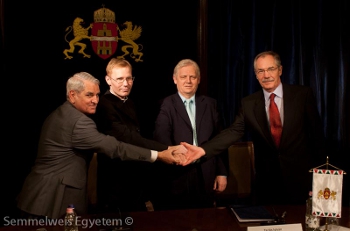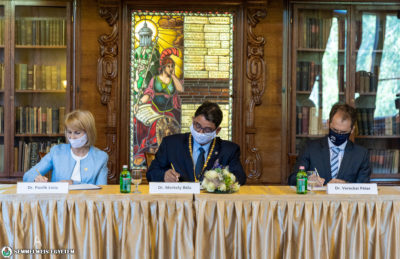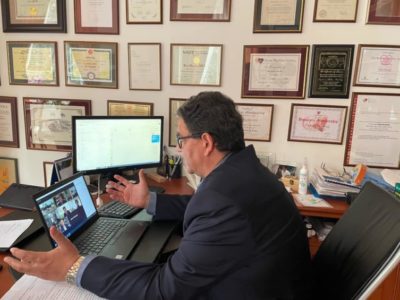Three institutions of higher education – Semmelweis University among them – have signed a cooperation agreement with the Municipality of Budapest.
Mayor István Tarlós stated that it would be a mistake on the part of the city to not make use of the knowledge and research results that are in the universities’ possession. “The current agreement is not merely a blank piece of paper; this formalised cooperation serves the improvement of our city. We seek out and welcome the universities’ suggestions and count on their intellectual capacity in the course of our urban development work,” he related. The mayor believes that having a strong capital city is essential if Budapest wishes to maintain its position as one of Central Europe’s leading scientific centres, something for which the universities’ knowledge is indispensable.

Dr. Tivadar Tulassay, rector of Semmelweis University, asserted that the agreement has more than symbolic significance. “It is pleasing to know that the capital city is also proud that it has a reputable, nearly 243 year-old university operating within its boundaries. Although the possibility of cooperating had arisen several times in the past, only now has there been progress in this area,” he said.
“An enormous task awaits the university and the city in the health care sector, owing to the reorganisation of the Hungarian hospital structure and patient care system, which is currently on the government’s agenda,” Rector Tulassay added.
Dr. Szabolcs Anzelm Szuromi, rector of Pázmány Péter Catholic University pointed out that “the individual sciences are not able to function without one another, nor can the city develop in the absence of meaningful cooperation.” It is for this reason that the possibilities provided by the current agreements are so important, he said.
Dr. Tamás Mészáros, rector of Corvinus University remarked on the significant contribution which higher education institutions make to the cityscape. “In addition to this, the question of how the more than 100,000 university students who study in Budapest live their day-to-day lives and the extent to which the city can utilise their knowledge is not a negligible one,” Dr. Mészáros said, outlining the reasons why he considers the signing of the current document to be a significant step.
The current agreement sets the foundation for cooperation and collective thinking in many fields, ranging from health care and information technology through economics and environmental protection.
Pálma Dobozi
Translated by Gina Gönczi


